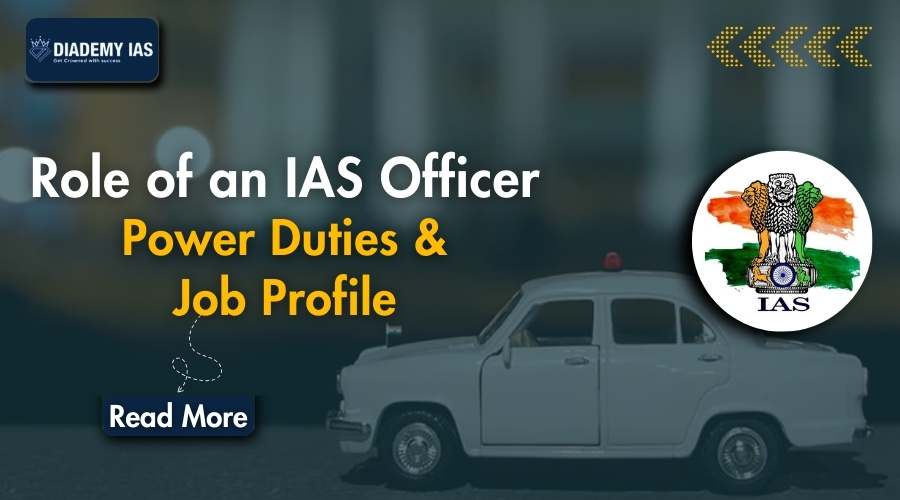Role of an IAS Officer: Power, Duties & Job Profile
Curious about the inner workings of an IAS officer's job? Discover the power and perks of this prestigious role now!

Table of Contents
Welcome to our comprehensive guide on the power, duties, and job profile of an IAS officer. The Indian Administrative Service (IAS) is one of the most prestigious and coveted Civil Services in India, and those who hold the position of an IAS officer wield significant influence in shaping government policies and programs. Let's delve deeper into the world of an IAS officer and explore the exciting opportunities and responsibilities that come with the job.
The Authority and Influence of an IAS Officer
IAS officers hold a remarkable amount of authority and power when it comes to decision-making and policy implementation on behalf of the government. They play a crucial role in formulating and executing policies that have a direct impact on the lives of Indian citizens across various sectors. The ability to influence and bring about positive changes in society is one of the most rewarding aspects of being an IAS officer.
Discover the Benefits of Being an IAS Officer
Stay updated on career insights, tips, and exclusive offers by subscribing now!
Responsibilities and Duties
At the district level, IAS officers are entrusted with a wide range of administrative responsibilities. They oversee the implementation of government programs and schemes, monitor their progress, and evaluate their effectiveness. Interacting with the public and addressing their grievances is a key aspect of their role, as is maintaining governance transparency and upholding the rule of law.
Unleash your full potential as an IAS officer and reap the rewards of serving your nation! Check out this detailed look at the job profile: #IAS #publicserviceTweet Quote
Job Profile and Career Progression
One of the unique aspects of being an IAS officer is the opportunity for rotational postings in different departments and ministries. This allows officers to gain a diverse range of experiences and skills. IAS officers are actively involved in formulating and implementing government policies, leading and managing a team of government officials, and representing the government at various national and international forums.
Challenges Faced by IAS Officers
Despite the many perks of being an IAS officer, there are several challenges that they often face. Bureaucratic red tape and delays in decision-making can be frustrating, as can the pressures from politicians and interest groups. Balancing service to the government with public welfare can also present unique challenges that require tact and finesse to navigate.
Skills and Qualities Required
To excel as an IAS officer, one needs a combination of strong leadership and management skills, the ability to work under pressure and in challenging environments, a commitment to public service and integrity, and the willingness to continuously learn and adapt to new situations. These skills and qualities are essential for success in the dynamic world of civil service.
Career Growth and Opportunities
IAS officers enjoy ample opportunities for career growth and specialization within the civil services. There are avenues for promotion and career progression, as well as opportunities for further education and specialization in specific areas of interest. Post-retirement options in academia, consulting, or public service present additional avenues for IAS officers to continue making a positive impact beyond their active service years.
Discover the Benefits of Being an IAS Officer
Stay updated on career insights, tips, and exclusive offers by subscribing now!
In Conclusion
The role of an IAS officer is both challenging and rewarding, offering the opportunity to make a meaningful difference in society and contribute to the development of the nation. If you have a passion for public service and a desire to bring about positive change, consider pursuing a career in the Indian Administrative Service. The power, duties, and job profile of an IAS officer are filled with opportunities to make a lasting impact and shape the future of India.
Frequently Asked Questions (FAQs)
What is an IAS officer?
An IAS (Indian Administrative Service) officer is a senior administrative civil servant in India, responsible for implementing government policies and administering various government departments and programs. They play a key role in the administration of the country at various levels.
What are the main duties of an IAS officer?
IAS officers have a wide range of duties, including:
- Implementing government policies and programs.
- Managing administrative functions and overseeing the execution of government projects.
- Maintaining law and order, especially in districts and states.
- Representing the government in various capacities and coordinating between different government departments.
- Preparing and managing budgets and ensuring the efficient use of public funds.
What powers do IAS officers hold?
IAS officers wield significant powers, including:
- Authority to implement and supervise government policies and regulations.
- Decision-making powers related to administration, public welfare, and law enforcement.
- Ability to make or influence policy decisions and recommendations.
- Administrative control over government departments and staff.
How does one become an IAS officer?
To become an IAS officer, one must pass the Civil Services Examination conducted by the Union Public Service Commission (UPSC). The examination consists of three stages: the Preliminary Examination, the Main Examination, and the Personality Test (Interview).
What are the different roles an IAS officer can take up during their career?
IAS officers can serve in various roles, including:
- District Collector or District Magistrate.
- Sub-Divisional Magistrate.
- Secretary in different government departments.
- Chief Secretary of a state.
- Various positions in central government ministries and departments.
What is the training process for IAS officers?
After selection, IAS officers undergo training at the Lal Bahadur Shastri National Academy of Administration (LBSNAA) in Mussoorie. The training includes theoretical courses, practical exercises, field visits, and hands-on administrative experience.
What is the career progression for an IAS officer?
IAS officers typically start their career as Assistant Collectors or Sub-Divisional Magistrates. They can progress to higher positions such as District Collector, Divisional Commissioner, and Secretary at the state or central level, eventually reaching the rank of Chief Secretary or Secretary to the Government of India.
What is the work-life balance like for IAS officers?
The work-life balance for IAS officers can be challenging due to the demanding nature of their job, which often requires long hours, frequent travel, and high levels of responsibility. However, the job also comes with a sense of fulfillment and prestige.
What are some of the key challenges faced by IAS officers?
IAS officers face challenges such as:
- Managing complex administrative tasks and ensuring effective implementation of policies.
- Handling public grievances and addressing issues related to law and order.
- Navigating political pressures and balancing various stakeholder interests.
- Ensuring accountability and transparency in government operations.
How does an IAS officer contribute to national development?
IAS officers contribute to national development by:
- Formulating and executing policies that drive economic growth and social progress.
- Ensuring efficient delivery of public services and infrastructure development.
- Promoting good governance, transparency, and accountability in administration.
- Addressing issues related to poverty alleviation, education, health, and rural development.



